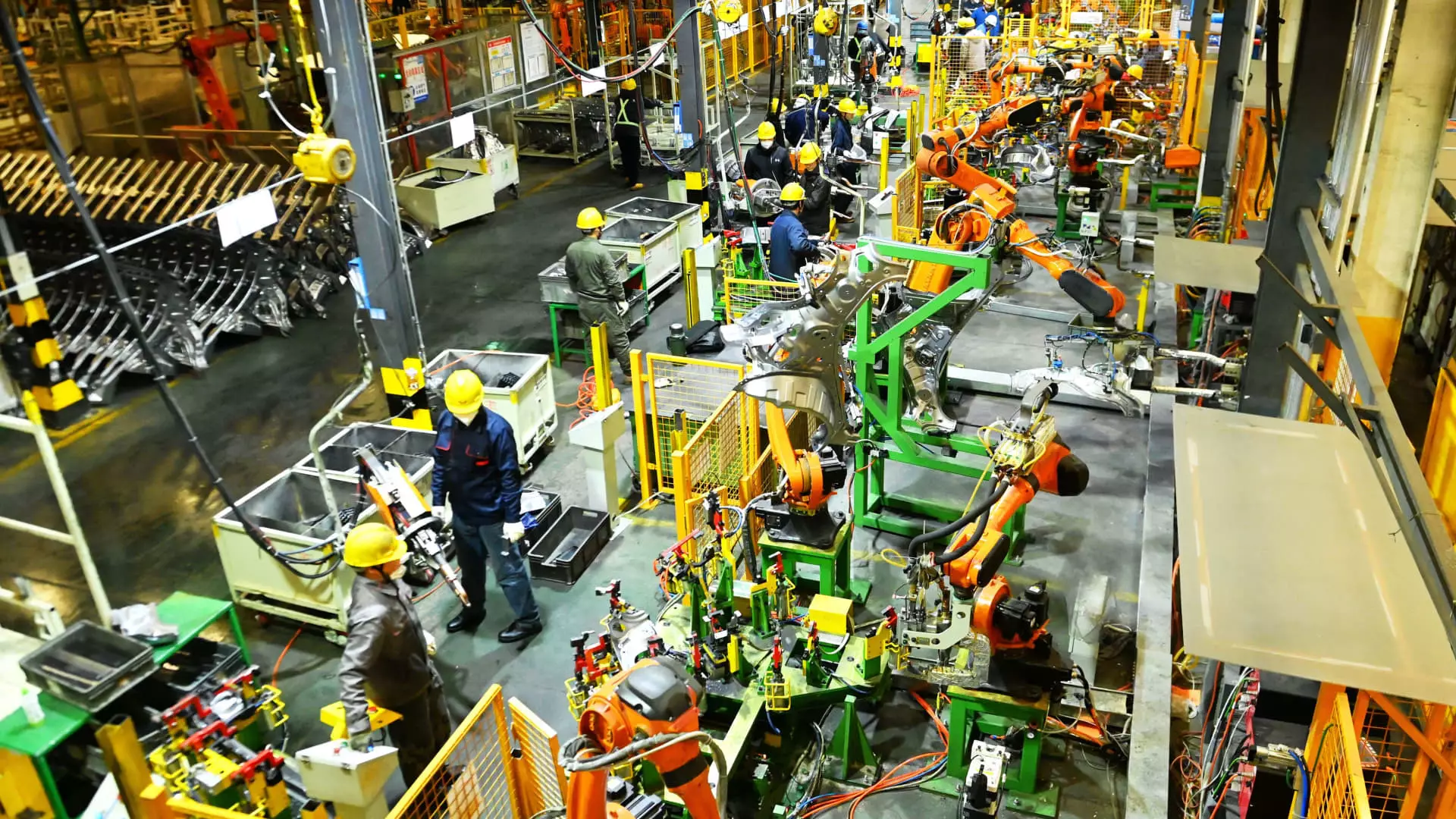President Donald Trump’s administration has stirred controversy with its tariffs on automotive imports, particularly from China and Canada. The ongoing discussions surrounding potential exemptions for automakers reflect a crucial juncture—one that could significantly impact the health of the U.S. automotive industry. While there appears to be a glimmer of hope with possible exemptions for auto parts, the looming tariffs could pose a larger threat to the industry’s stability. True to form, this complicated web of tariffs raises deep concerns about whether the administration’s strategies can achieve their intended goals or if they are poised to backfire spectacularly.
Tariffs are often considered a tool to protect domestic industries, but the implications for automakers are far more nuanced. Trump’s imposition of a blanket 25% tariff not only raises costs for foreign producers, but it also imposes a burden on American automakers, who largely rely on global supply chains. The idea that tariffs can simultaneously protect U.S. manufacturing and exacerbate operational costs is flawed, particularly in a landscape where competition and innovation are vital for survival.
Lobbying Comes to the Forefront
It’s no surprise that, in light of impending tariffs, a coalition of automotive industry representatives has banded together to lobby Trump for relief. This rare display of unity underscores the severity of the challenges they face. They are singing from the same hymn sheet, pleading for support against policies that could lead to severe financial distress and operational headaches. The automotive sector has long been a driver of the U.S. economy, and a flagrant disregard for its needs could jeopardize the broader manufacturing framework.
The notion of “de-stacking” tariffs, which aims to ease the cumulative financial pressure, seems to have sparked an optimistic flicker among industry leaders, including General Motors CEO Mary Barra. However, one must question if this optimism is warranted. Repeatedly, we have seen how short-term relief can result in long-term repercussions. If Trump does decide to exempt parts, will this be merely a temporary patch, or will it signal a shift in policy that recognizes the complexity of the industries involved?
The Risk of Escalation
Trump’s recent comments regarding potentially increasing tariffs on Canadian automotive imports exemplify a worrying escalation in trade politics. The administration’s “America First” doctrine tends to overlook the tangled nature of modern trade relationships, particularly with a neighbor as economically intertwined as Canada. By maintaining such a confrontational stance, there is a real danger that the U.S. could find itself in an escalating trade war—not just with China but with key ally nations as well.
Trade policies affecting one sector inevitably spill into others, and the auto industry is not an isolated case. A cyclical impact where tariffs on automotive parts escalate costs could ripple through various sectors, ranging from electronics to basic manufacturing supplies. Consequently, escalating tensions with trade partners might deter foreign investments and collaboration, threatening not only American job creation but also the economy’s overall robustness.
Need for Clarity and Consistency
A recurring theme among automotive leaders like Barra is the demand for clarity and consistency in trade policies. This is not only reasonable but also essential for fostering an environment where American automakers can thrive in a competitive global marketplace. Without clear expectations, companies are left in limbo, hamstringing their ability to make strategic investments.
The push for definitiveness in trade agreements illustrates an understanding that ambiguity can lead to detrimental business decisions. While Trump’s administration has occasionally championed deregulation to stimulate growth, the current approach to tariffs runs counter to the simplicity and stability businesses seek. In an age of agility, automotive companies require regulatory environments that are predictably favorable rather than erratic.
As the automotive industry navigates Trump’s complex tariff landscape, it’s imperative for policymakers to reflect on the broader implications of these economic measures. What may seem like a tactical maneuver could trigger unforeseen consequences that threaten the very foundations of the industry. The stakes are undeniably high, and the future of American automotive manufacturing hangs in the balance. What is required now is a thorough reassessment of tariff strategies that not only protect American interests but also create an environment conducive to growth, clarity, and innovation.

